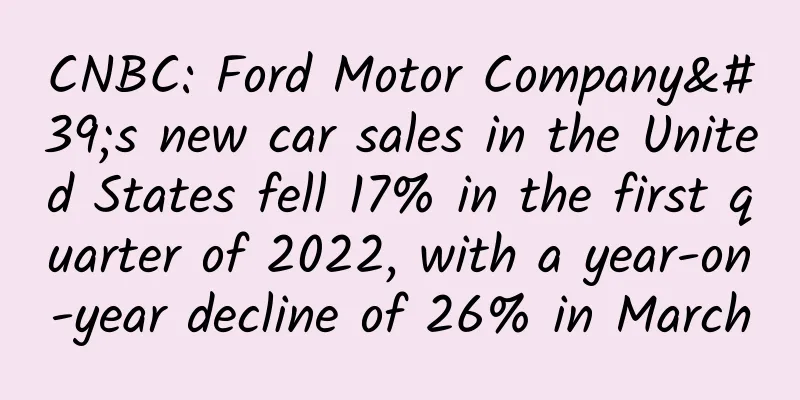Foreign media: Smartphone market saturation is good for Google and can stimulate its growth potential

|
The online version of the Wall Street Journal published an analysis article saying that although the smartphone market is becoming saturated, Google can benefit from it. On the one hand, due to Android's dominance in the smartphone market, Google has become a "thorn in the eye" of EU regulators. As the growth of the smartphone market slows down, Google's dominance may no longer be as prominent as before. On the other hand, unlike Apple, which relies on high-end phones, Google's Android covers a variety of product price points. The smartphone market in developed countries is becoming saturated, but there is still room for growth in developing countries. In a rapidly slowing smartphone market, Google can still maintain Android's growth and improve indicators such as cost per click. The following is the full article: The global smartphone business hasn't quite peaked yet, but growth in the market has become increasingly difficult. Oddly enough, that could be a boon for Google. As the Internet search giant under Alphabet, Google has dominated the smartphone market. According to data from market research firm IDC, nearly 80% of smartphones sold worldwide last year ran Android. Google has released a developer preview of this year's new Android system, Android N, and is expected to officially release the system later this year, but Google should showcase this new version of the system at the Google I/O developer conference this week. Alleviating EU concerns Android's dominance has already drawn scrutiny from European regulators, creating long-term risks for the company, which may no longer stand out as much as it once did amid growing signs that the smartphone market is headed for an unprecedented slump. IDC data shows that global smartphone shipments were flat year-on-year in the first quarter of this year. Apple's iPhone sales in the second fiscal quarter suffered its first year-on-year decline in history. Samsung, the world's largest Android phone maker, also saw a decline in total smartphone sales as weak sales of older models offset the strong sales of the new Galaxy S7. Global smartphone shipments continue to decline This is a severe decline for an industry accustomed to double-digit growth. However, the reality of the smartphone industry is no longer able to support rapid growth. Users in developed countries already own a variety of devices, and most users who can afford high-priced products such as iPhones and Galaxy S phones already own them. Therefore, the smartphone market in developed countries will now rely mainly on mobile phone upgrades and the conversion of feature phone users to smartphones to drive growth. Market research company comScore estimates that nearly 80% of Americans now own smartphones. The smartphone market in developing countries, including India, Africa, and the Middle East, still has growth potential, but this growth will actually slow down due to network restrictions and the ability to purchase devices. Low-cost phones drive Android growth Still, it's a good sign for Google. Unlike Apple, which relies on high-end devices, Google's Android system covers a wide range of product price points. Nearly 60% of Android phones cost less than $200, said Neil Shah, an analyst at market research firm Counterpoint Research. In contrast, no iPhone model can be priced at that level unless carriers provide subsidies. So, in a market where growth is slowing rapidly, Google should still be able to sustain Android's growth. Scale matters. Android's share will reach 85% by 2020 Google doesn't make money from devices, but it does provide lucrative search and other services to users. There's still room for Google to grow here, too. Google's cost per click, a measure of how much advertisers pay, is nearly 30% lower on mobile than on desktop, UBS analyst Eric Sheridan estimates. As mobile users conduct more business on their devices, Google's cost per click should grow. IDC predicts that the average growth rate of smartphone sales will be 6% in the next five years. As time goes by, the share of Android system will gradually increase. By 2020, the Android market share will increase from about 80% now to 85%. The data should provide reassurance to investors concerned about how Google will fare in a slowing market. As a winner of Toutiao's Qingyun Plan and Baijiahao's Bai+ Plan, the 2019 Baidu Digital Author of the Year, the Baijiahao's Most Popular Author in the Technology Field, the 2019 Sogou Technology and Culture Author, and the 2021 Baijiahao Quarterly Influential Creator, he has won many awards, including the 2013 Sohu Best Industry Media Person, the 2015 China New Media Entrepreneurship Competition Beijing Third Place, the 2015 Guangmang Experience Award, the 2015 China New Media Entrepreneurship Competition Finals Third Place, and the 2018 Baidu Dynamic Annual Powerful Celebrity. |
<<: From the hit of "Ode to Joy" to how video websites grasp the lifeline of drama selection
Recommend
Can flying cars successfully take off into the sky?
In the technology circle, flying cars have always...
[One-Knife Fighting Method] Brother Dao’s main rising wave dark horse special combat camp
[One Knife Fighting Method] Introduction to the r...
How much does it cost to make the Naqu Electrical Mini Program? What is the quotation for the production of Naqu Electrical Mini Program?
WeChat Mini Program is an application that users ...
The Ministry of Industry and Information Technology has asked app stores to remove apps exposed during the 315 Party
[[387969]] Last night, CCTV's 315 Gala expose...
The Douyin advertising platform was launched for the third time. This time, the commission was reduced from 60% to 30%!
After being delayed for more than a month, Douyin...
If you encounter these situations during the Spring Festival, it is recommended to call the police immediately! ! !
One minute with the doctor, the postures are cons...
Observation on buying traffic on Tik Tok and Kuaishou platforms!
As the current leaders of short video platforms, ...
How to write a new media marketing promotion plan!
What role does new media marketing play? How to s...
What kind of soil can increase your worth? Answer: Moon soil!
After shopping, many people will jokingly say &qu...
China and Japan cooperate to unify charging standards and build charging piles, which may significantly reduce costs
Recently, the China Electricity Association decid...
360 search advertising promotion URL setting optimization tips!
What are the requirements for setting the display...
How much does it cost to customize a nutritional product mini program in Ganzi?
The main factors affecting the price of mini prog...
Want to raise this kind of "golden retriever"? Warning: life imprisonment!
Golden Retriever, my dream dog, tall and gentle. ...
In-depth analysis of short video KOL celebrities in Q3 2019
In the third quarter of 2019, the total number of...
10 pictures tell you the correct way for traditional enterprises to embrace the Internet
Embracing the Internet is the general trend Inter...









